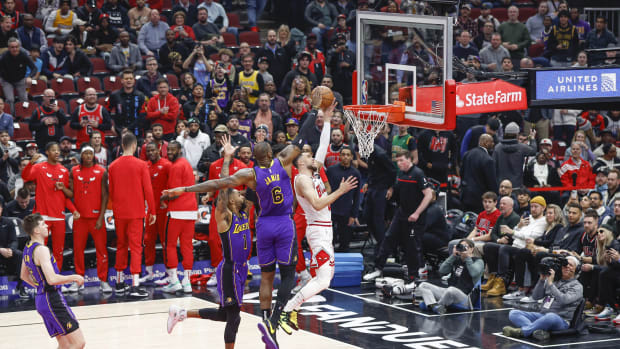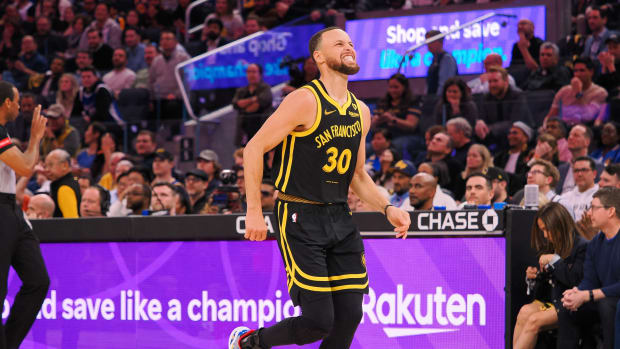Spurs eliminate Thunder, advance to second straight Finals for rematch with Heat
San Antonio's win secures its second consecutive Western Conference title. (Photo: Greg Nelson/SI)
OKLAHOMA CITY -- The Spurs advanced to the 2014 NBA Finals by beating the Thunder 112-107 in overtime of Game 6 of the Western Conference finals on Saturday.
San Antonio secured its second consecutive Western Conference title. The West's No. 1 seed, went 12-6 (.666) against the Mavericks (4-3), Trail Blazers (4-1) and Thunder (4-2) on their way to the Finals. San Antonio will make its sixth Finals appearance since 1999 in pursuit of the fifth title of the Tim Duncan era. The Spurs have never previously advanced to the Finals in two straight years, and their series victory avenges their loss to the Thunder in the 2012 Western Conference finals.
A rematch awaits the Spurs in the Finals, where they will get another shot at dethroning the back-to-back champion Heat. The 2013 Finals was a seven-game classic, with Miami coming back from a 3-2 series deficit to win Games 6 and 7 on their home court. This year, the Spurs -- 62-20 during the regular season, eight wins better than the Heat -- will hold home-court advantage. San Antonio is 9-1 at home during the postseason, winning those games by an average of 16 points.
The 2014 Finals will mark the first rematch since Michael Jordan's Bulls defeated the Jazz, led by Karl Malone and John Stockton, in 1997 and 1998. Before that, the last time the same two teams faced each other in back-to-back Finals was 1988 and 1989, when Magic Johnson's Lakers and Isiah Thomas' Pistons each won a title against the other.
The Spurs and Heat split their season series 1-1. San Antonio won 111-87 at home on March 6 while losing 113-101 in Miami on Jan. 26.
This year, the NBA has adopted a 2-2-1-1-1 format for the Finals rather than the 2-3-2 format that had been used since 1985. The 2-3-2 format was instituted to lessen travel demands on the teams and to appeal to traveling media members, but former NBA commissioner David Stern told reporters in October that those concerns are no longer what they were, given the advent of charter planes and a shifting media landscape that is no longer solely dominated by newspapers.
Stern said the format change was made to restore home-court advantage to the team with the better record, by playing Game 5 in its building and by cutting down on its time spent consecutively on the road.
“There’s been an abiding sense among of our teams [that] in a 2-2 series, it’s not fair for the team with the better record to be away,” Stern explained. “It’s [also] difficult for the better team in terms of record to spend as many as eight days on the road away from home.”




































